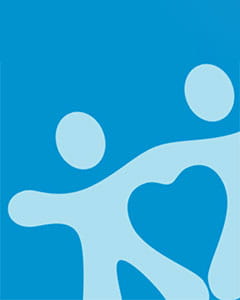Emergency disaster planning for children and their families who live with End Stage Renal Disease
Written by Barbara Cometti, BA, RN, CDN, Clinical Assistant Nurse Manager, and Jennifer McDonald, RD, LD, CDE, Registered Dietitian, at the Hewell Kids' Kidney Center.
Did you know that 350,000 people in the United States today are on some form of dialysis? This treatment method is especially important for End Stage Renal Disease (ESRD) patients, as they cannot survive without some form of dialysis for any extended length of time.
How dialysis works
Normal kidney function removes fluid and waste products from a person’s blood 24 hours a day. However, patients with renal disease rely on dialysis to do this job for them, since their kidneys do not function properly. Some patients dialyze two to four days a week, for three to five hours per treatment, to be able to maintain their optimal health. In other words, many kidney patients are reliant on easily accessible dialysis treatment for optimal health.The importance of having an emergency plan
Power outages, hurricanes, tornadoes and/or national disasters can prevent patients from receiving their dialysis treatments, so it is extremely important that they are properly educated on how to live under these circumstances. In any emergency situation, patients would have to adhere to a strict dietary prescription, medication dosing and fluid restrictions.Here in Florida, hurricane season is always a concern for our dialysis patients, in which case they must be prepared to implement an emergency plan. In 2005, Hurricane Katrina prompted the formation of the Kidney Community Emergency response coalition. During this time of year (and every other time of the year) it is important that we educate patients and their families on how to survive when dialysis is not available.
What does an emergency plan look like?
Emergency Diet PlanIn any emergency situation, patients with End Stage Renal Disease should follow an emergency diet plan. A strict diet consists of avoiding high potassium, phosphorus foods, and sodium foods. All of these nutrients can cause life-threatening events if their levels are elevated. Following a fluid restriction diet is also critical for patients who do not produce urine, because they can develop shortness of breath and generalized swelling, which places additional strain on their heart. If there is too much fluid buildup, it can be life threatening to the patient.
Learn more about the emergency diet plan here.
Having Medications on Hand
Knowing, carrying and maintaining an extra week of your medications on hand at all times can make sure that you are prepared for a disaster.
Dialysis patients should always ask their doctor for medical advice when developing an emergency plan, first. It is important to note that the tips provided here may not work for every patient, or in every emergency situation. For patients with special health problems or conditions, their emergency plan may look a little different. We encourage you to talk to your doctor and renal dietitian to discuss which of these tips can work for you, and which tips you should adjust.
If you need immediate medical attention at any time, contact your doctor or call 911.







